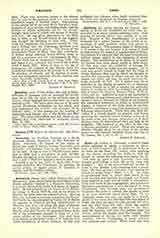

Ambarach, PETER (also called BENEDICTUS and BENEDETTI, these names being the equivalents of the Arabic ambarak “blessed”), a Maronite Orientalist, b. at Gusta, Syria, June, 1663; d. in Rome, August 25, 1742. He was educated by the Jesuits in the Maronite college in Rome, 1672-85, and on his return to Syria in the latter year was ordained priest. Having been sent to Rome on business concerning the Maronite Church, he was requested by Cosmo III de Medici to organize an Oriental printing establishment at Florence, and then was given the chair of Hebrew at Pisa. In 1708 he entered the Society of Jesus. Shortly after this Clement XI appointed him a member of the commission charged to bring out a corrected edition of the Septuagint. His chief work is an edition of the Syriac works of St. Ephrem with Latin translation, of which, however, he had only published two volumes when death overtook him; the third was completed by Stephen Assemani.
F. BECHTEL

